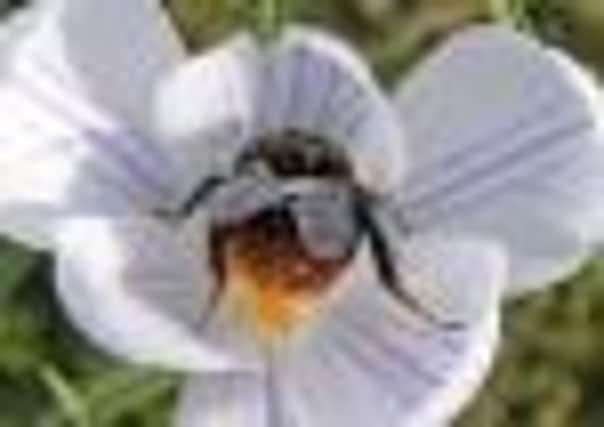Insecticide-damaged bees die trying to find the way home


But new research from Scots and French scientists has highlighted the damaging effect insecticides have on the common bumblebee, meaning the insects are far more likely to die while away from their hives.
The pesticide affects the insects’ innate sense of direction and renders them unable to find their way back to their colony, according to the researchers.
Advertisement
Hide AdAdvertisement
Hide AdEven at non-lethal levels of exposure, the bees’ natural homing instinct is severely reduced, with the resulting high mortality rate making their colonies unstable.
With the world’s bee population plummeting – a trend which has a knock-on effect on the pollination of plants and future food supplies – the scientists stressed that the widespread use of insecticides must be “urgently” reconsidered.
According to the campaign group, Adopt a Hive, Britain’s bee population has declined by a third since 2007, with a 75 per cent reduction in hives in the past century. It remains unclear how bees navigate, but it is thought their vision helps keep them on course and recognise landmarks, while they also use odours to track their route.
The two new studies sought to examine the effects of neonicotinoid insecticides, commonly used throughout the world. They act on the insect’s central nervous system and they spread to the nectar and pollen of flowering crops.
One study, from the University of Stirling, showed that colonies exposed to the pesticide gained less weight, suggesting less food was coming in. The bees, it found, were on average eight to 12 per cent smaller than the control colonies at the end of the experiment and produced about 85 per cent fewer queens.
Professor David Goulson, from the University of Stirling’s school of natural sciences, the study’s lead author, said: “We rely on bees to pollinate many of our crops, and we need to be really concerned if we are accidentally poisoning lots of bees, and we need to find an alternative.
“Bumblebees have been declining for around 60 years due to all sorts of changes including the intensification of farming. In the UK, we used to have 27 species of bumblebee, but three of them have gone extinct and others are close to extinction.”
Another study, published in the journal Science, used microchips to track the bees and discovered the insecticide impairs their homing instincts. The researchers from the French National Institute for Agricultural Research (INRA) found that, compared to control bees that were not exposed to the pesticide, the treated bees were about two to three times more likely to die while away from their nests.
Using mathematical models, they were able to predict that exposure to the pesticide would cause the population “to drop to a point from which it would be difficult to recover”.